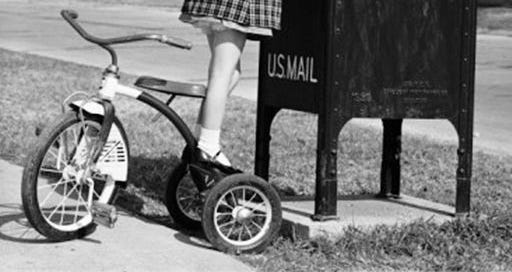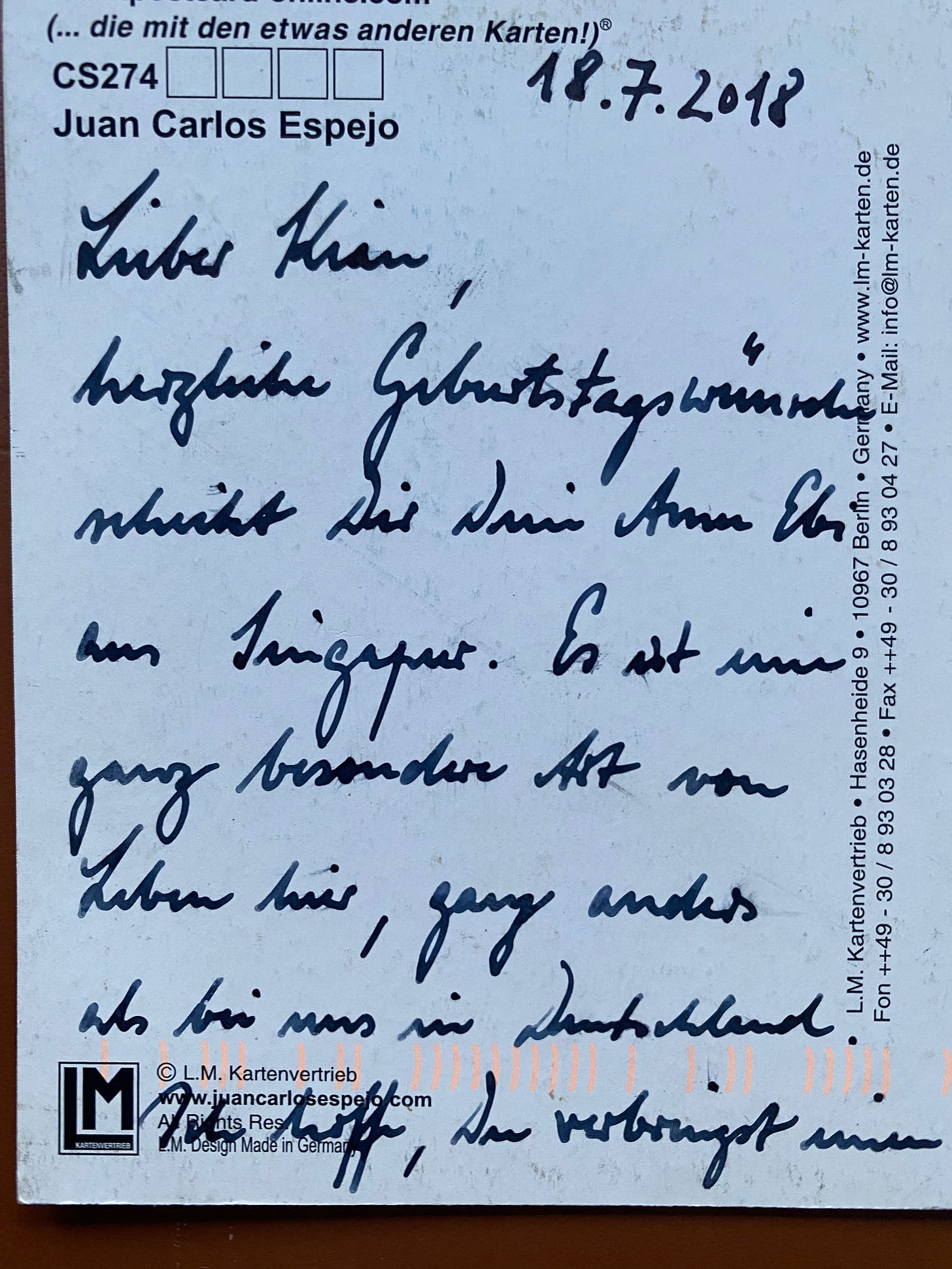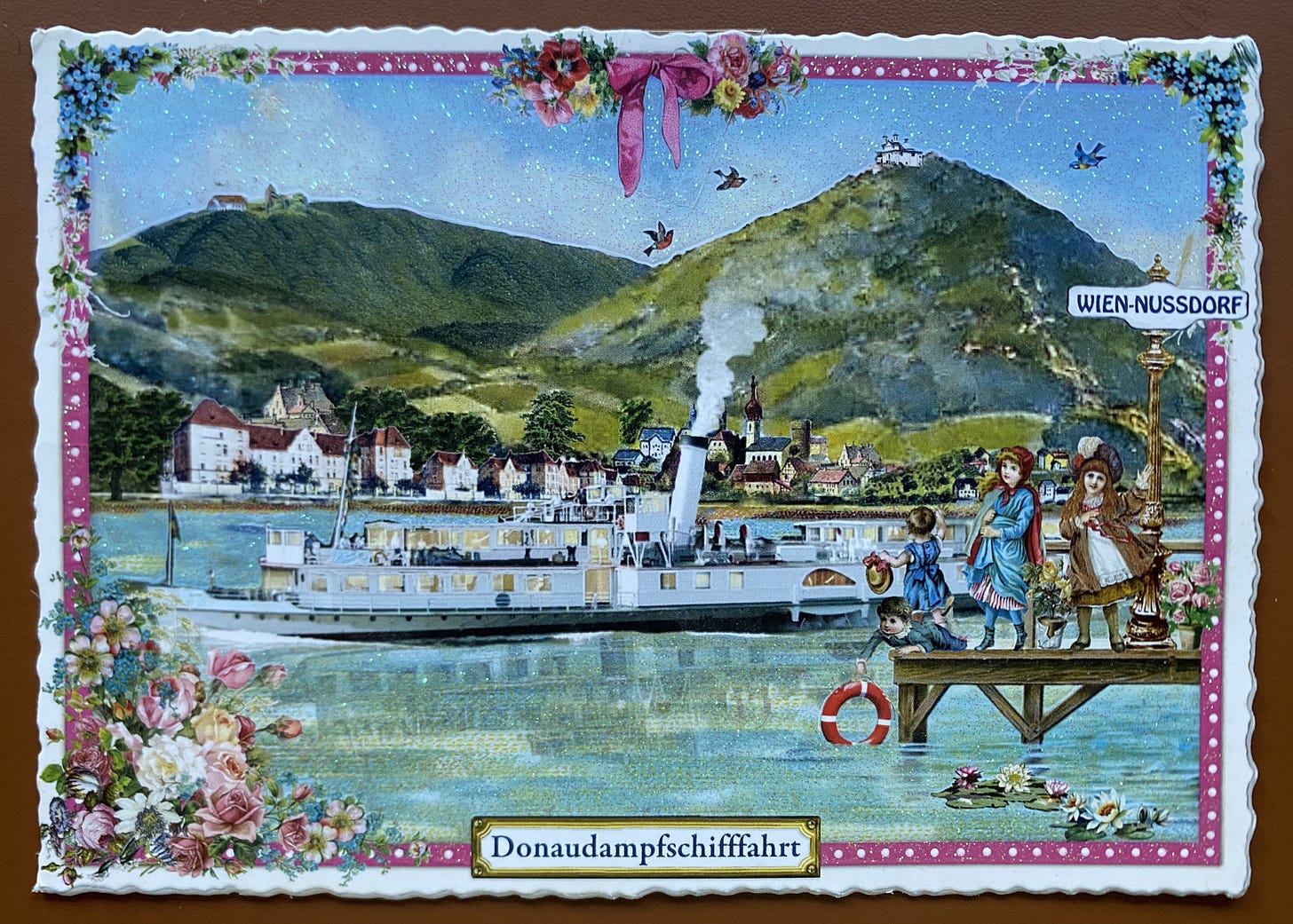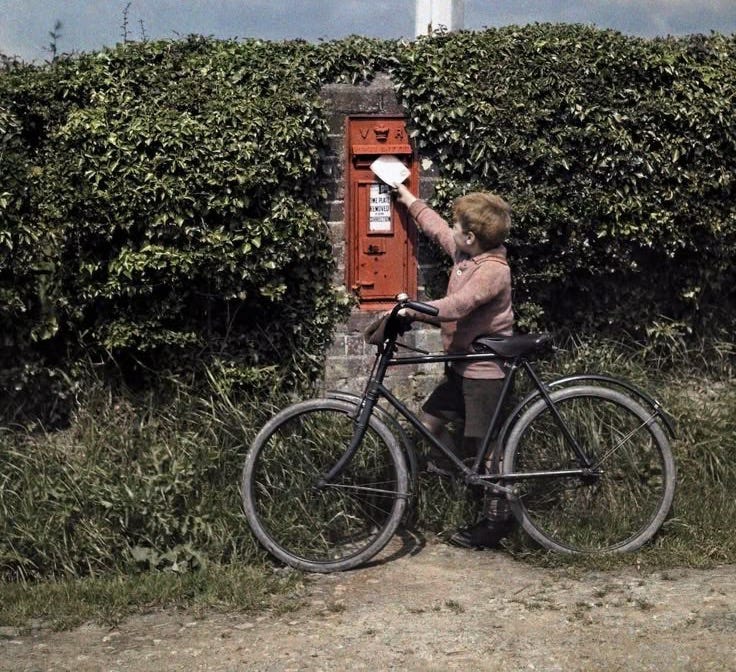When was the last time someone wrote you a postcard?
I had to check myself: 18th of July 2018. My uncle, in small, fly-feet-resembling letters, wished me a Happy Birthday from Singapore. Since then, nothing.
I have never written a postcard before. It’s not that I’m not intrigued by the concept (in the end, I love writing and being pretentious), but there just never really was any point in writing one.
I could communicate with my friends over Instagram or WhatsApp and could do so instantly without having to wait days for them to receive my message. And I’m not alone. Each year, the volume of addressed letters being delivered by Royal Mail declines by around 9%. I mean, why should people spend effort, money, and time on something that they can do with their phone in seconds?
Something Real
One answer is that it is something physical. A postcard holds a place and pins it to a moment in time. Yeah, messages on WhatsApp are also “there”, but a letter gives you something to actually hold. That 2018 card from my uncle, sun-bleached and slightly curled, makes me think of Singapore even though I’ve never been.
It’s like I’m retracing his steps. I imagine what the postcard went through on its journey to me—the weather it had to withstand, the hands that carried it. When I see smudged ink, I wonder if it rained when it was written. I examine the stamps, always colourful and specific to the region, trying to figure out when they were published. Even the smell makes me think about distance. All of that is proof that someone took time out of their day to send me something real.
I keep all my postcards (6 to be precise), in a small shoebox and I sift through them when I feel nostalgic. It’s comforting to see where the people, who thought of you, were in the world on September 18th, 2014. My uncle was in Vienna on that day.
He is, officially, the only person who has ever sent me a postcard. Unofficially—if we count postcards handed to me directly—the list grows to a grand total of three, thanks to my lovely flatmates.
With one of them, I have a tradition in which we bring each other postcards back from wherever we go. The last one I got from her was from Paris. It’s sitting on my bookshelf. My other flatmate recently moved to Ireland and, before leaving, gave each of us a postcard from the National Gallery with a sweet message and her new address.
With those two postcard gestures fresh in my mind, and now back home in Germany, I decided it was time: I would write my first postcard.
My first Postcard
This sounds simpler than it was. At least for the inexperienced twenty-something, who has basically never mailed anything in his life.
After I bought a nice card that I thought represented my hometown quite well (most touristy card I could find), I had to google the international postage service Porto, which currently lies at 1.25 Euros—thank you Deutsche Post. Luckily, my dad always has stamps in the house, so I skipped that step. I wrote a nice little message on the back of each card, realised that I had written into the address section, and tried to frantically undo my mistake which was marginally effective. After crossing out the words that were in the way, I wrote the address as legibly as I could and in big capital letters added ENGLAND and IRELAND and squeezed the rest of my message in the remaining space. I always wondered why my uncle had such small handwriting, and now I knew. It’s hard to fit a heartfelt message next to an international address. I added PRIORITY/AIRMAIL (free, but still important-sounding), walked five minutes in the opposite direction of where I needed to go to find a mailbox, and dropped them in. Voilà. I’d sent my first postcards.
But why?
Why, if a check-in message on WhatsApp would do the trick, do all of this? Just because it is something physical that you can hold onto? Is nostalgia enough to justify all that effort?
Ah, there it is: effort.
Sending a postcard is a small act of selflessness. You choose the card, write a note, pay for a stamp, walk to a post-box—all so that someone, somewhere else in the world, gets a surprise reminder that you were thinking of them.
And that kind of effort has gone out of fashion. It’s seen as romantic or, worse, pretentious. Maybe it is. But not everything needs to be practical. Postcards aren’t meant for quick updates. They create space. They slow things down. They give you a moment of stillness in a world where you’re expected to be constantly online.
When I wrote the postcards, I felt the same calming effect that writing these blog posts has on me, with one major difference: I felt connected to my friends.
I thought about what they might be doing in that moment. How they would react to seeing my postcard. Of course, ego might play a small role here, but who doesn’t want to think that their friends would smile seeing that you thought of them? It’s a way to have an intimate downtime where you are alone with your thoughts but still feel connected to a community. No Instagram rabbit hole to fall in after sending a message to the group chat.
It made me realise this is part of something bigger. More and more people I know are trying to “unplug”. They delete Instagram, switch to flip phones, or go on walks without headphones. Catherine Shannon wrote a great piece on Substack about how she discovered the flip-phone for herself, which I highly recommend.
Beyond that, though, there’s something deeper at play. In an increasingly AI-driven world, writing a physical postcard feels like one of the last purely human acts. The smudges, the misspellings, the crossed-out words. There’s no mistaking them for anything but the touch of a real person. A postcard gives our desire to connect something precious: authenticity. No ChatGPT in sight.
Thus, I think, this is a response. We’re waking up to how social media fragments our attention and fuels our anxiety levels.
When I was writing those postcards, my mind felt clear. Free, even. And I know this might sound like I’ve just discovered fire—but hear me out. My generation never used letters. The earliest form of communication I remember is a flip phone.
A letter, by contrast, feels oddly ancient and strangely new. It’s time, ink, and thought. No wonder so many letters by famous writers survive: a letter is like holding a page from someone’s diary written just for you. And the postcard? It’s the letter’s localised little brother. Small, but still personal. Still, something real.
I want mail.
I believe you should do to others, as others should do to you. Which is why I send postcards to my friends.
First of all, I love receiving mail in general, as I, apart from HSBC bank statements, never get any. And secondly, I love the surprise aspect of it all. What someone wrote, and which card they picked, says a lot about how they see you.
Especially now that we are all spread across the globe (or at least Europe), I think taking time out of my day to deepen the connection to a friend is more important than ever. When this article is published, the postcards I have sent probably haven’t arrived yet, so I guess we still cannot completely escape social media without the fun of writing letters being spoiled (sorry to my flatmates for spoiling).
So please, next time when you feel overwhelmed: leave your phone at home, go into a store, buy a nice postcard, and write. To whoever you want (could even be yourself). If you cannot completely stop using the internet, you can even buy stamps online.
To the mailbox you still have to walk irl. At least for now.
P.S. If anyone wants to send me postcards now, please feel free to do so.











so jealous of your uncles handwriting its gorgeous
Mein lieber Sohn,
Du hast mit jedem Wort, das Du geschrieben hast, vollkommen recht – und ich bin als Vater, aber auch einfach als Mensch, sehr stolz auf Dich.
Nicht etwa stolz darauf, dass Du einen Beitrag veröffentlicht hast – das ist nebensächlich. Stolz bin ich darauf, dass Du begonnen hast – oder besser gesagt: längst damit angefangen hast – hinter die Fassade des Offensichtlichen zu blicken.
Deine Onkel, meine Brüder, sind die Einzigen, die ich kenne, die noch echte Postkarten schreiben. Einer von ihnen fügt sogar stets kleine Zeichnungen hinzu.
Genau das, was Du so treffend beschrieben hast, kommt mir jedes Mal in den Sinn, wenn ich abends müde und ein wenig verkniffen von der Arbeit nach Hause komme, den Briefkasten öffne – innerlich schon darauf eingestellt, nur einen Stapel Rechnungen und Werbung herauszuziehen – und dann kurz stutze: Zwischen all dem liegt unscheinbar eine kleine Karte – eine Postkarte.
Es ist ein bisschen wie das Weihnachtsgefühl, das man aus der Kindheit kennt: Diese leise Spannung, dieses freudige „Was mag mich da erwarten?“
Im Gegensatz zu den üblichen Inhalten des Briefkastens ist es ein durchweg positives Kribbeln.
Sogar das leicht mühsame Entziffern der Handschrift des einen Onkels – klein, fast wie feine Oszillogramme – macht Freude. Es lässt mich ihm für einen Moment ganz nah sein. Es berührt mich jedes Mal, dass er sich die Zeit genommen hat, an mich zu denken und ein paar persönliche Zeilen zu schicken.
Dein Text hat in mir den festen Vorsatz geweckt, auf meiner nächsten Reise selbst ein paar Postkarten zu schreiben – an Menschen, denen ich nahe bin.
Danke dafür, mein lieber Sohn.
Dein Papa